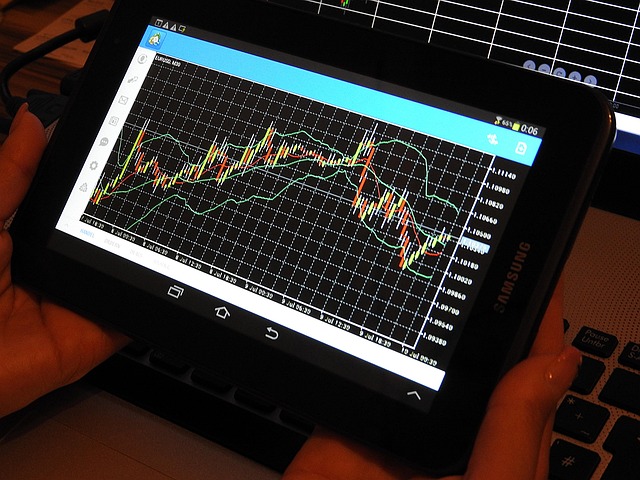Which platform is best for forex trading in UK: A complete guide to choosing the right broker and software
Author: Jameson Richman Expert
Published On: 2025-10-22
Prepared by Jameson Richman and our team of experts with over a decade of experience in cryptocurrency and digital asset analysis. Learn more about us.
If you're asking "which platform is best for forex trading in UK", this in-depth guide walks you through everything you need to know to decide — regulation, costs, order execution, platform types (MT4/MT5/cTrader/proprietary), mobile apps, algorithmic trading and recommended brokers for different trader types. Read on for a practical checklist, side-by-side considerations, real-world examples and links to further resources so you can pick the best UK-friendly forex trading platform for your goals.

Why the choice of platform matters
Choosing the right forex trading platform is not just about a sleek interface. It determines your access to liquidity, execution speed, spreads and commissions, available order types, charting and automation capabilities, risk controls and the safety of your funds under UK regulation. A poor choice increases trading costs, slippage and operational risk; the right platform improves your probability of executing strategies consistently and safely.
Key criteria to evaluate: what to look for
When comparing platforms and brokers in the UK, evaluate these major categories:
- Regulation and safety — Is the broker authorised by the Financial Conduct Authority (FCA)? Are client funds segregated and protected by the Financial Services Compensation Scheme (FSCS) where applicable?
- Costs — Spreads, commissions, overnight (swap) rates, inactivity or deposit/withdrawal fees. Look for transparent pricing and a low total cost of ownership.
- Execution model & liquidity — Market maker, STP or ECN. How orders are routed affects slippage and execution speed.
- Platform features — Charting, indicators, automated trading support (APIs, Expert Advisors/EA), backtesting and alerts.
- Order types & risk controls — Limit, stop, guaranteed stop-loss (GSL), one-cancels-the-other (OCO), margin calculators and position size tools.
- Mobile experience — Full-featured app with reliable streaming quotes and fast order entry is essential for active traders.
- Customer support & educational resources — Fast, helpful customer service and quality educational materials for beginners.
Regulation and fund protection (why FCA matters)
UK traders should prioritise brokers authorised by the FCA (Financial Conduct Authority). The FCA enforces capital adequacy, client money segregation and conduct rules that reduce counterparty risk. You can verify firms on the FCA register at FCA - Financial Conduct Authority.
The Financial Services Compensation Scheme (FSCS) may protect eligible clients if a firm fails. Know the limits and conditions before depositing large sums.

Costs explained: spreads, commissions and hidden fees
Total trading cost = spread + commission + financing + slippage + other fees. Platforms with tight spreads sometimes charge separate commissions (typical with ECN/STP accounts) while market makers may use wider spreads but advertise “commission-free” trading.
- Spreads: Variable vs fixed. Major pairs like EUR/GBP, GBP/USD will generally have the tightest spreads in competitive accounts.
- Commissions: Some low-spread accounts charge a round-trip commission per lot.
- Swaps/Overnight financing: Hold positions overnight? Check swap rates for long/short legs — these add up on multi-day trades.
- Other fees: Inactivity, deposit/withdrawal, conversion and platform fees can impact returns.
To learn techniques for reducing trading costs across products, see this deep dive on futures trading fees and strategies to minimise them — many of the same principles apply to forex: Futu fees explained — how to minimize trading costs.
Platform types and what they suit
Popular platform types include:
- MetaTrader 4 (MT4) — Legendary for forex, highly customisable with Expert Advisors (EAs) for automation and an extensive indicator library. Great for automated strategies and retail traders familiar with EAs.
- MetaTrader 5 (MT5) — MT4’s successor, supports more markets, improved order handling, and built-in depth of market (DOM).
- cTrader — Favoured by ECN-style brokers for transparent pricing, advanced charting, and automated trading via cAlgo (cTrader Automate) or APIs.
- Proprietary platforms — Broker-built web or desktop platforms (e.g. IG, CMC, Saxo) with polished UIs, deep research and custom order types. They may offer better UX but limited third-party automation.
- API-first platforms — Designed for algorithmic traders (REST, FIX, WebSocket). If you plan programmatic trading, ensure the broker provides robust, documented APIs.
Automation and building trading bots
If you plan to automate forex strategies, look for platforms offering EAs for MT4/MT5, cTrader Automate, or stable APIs. If you’re new to automation, this guide is a practical starting point: How to build your own stock trading bot — complete guide. The same workflow (data, strategy, backtest, deployment) applies to forex bots.
Top UK-friendly forex platforms and brokers — breakdown and who they suit
Below are widely-used platforms/brokers that serve UK traders. Each entry includes notable strengths and who it’s best for.
IG (IG Group)
- Platforms: Proprietary web/desktop, mobile apps, and MetaTrader 4 integration.
- Regulation: FCA-regulated (IG Index).
- Strengths: Excellent research, competitive spreads on major pairs, GSL options, advanced charting and a strong mobile app. Large product range (forex, CFDs, spread betting).
- Best for: Traders who want robust research, usability, and a regulated, established provider.
CMC Markets
- Platforms: Proprietary Next Generation platform, mobile apps.
- Regulation: FCA-regulated.
- Strengths: Extremely powerful charting and technical tools, competitive spreads, wide instrument coverage and strong educational content.
- Best for: Technical traders who rely on built-in analytics and charting.
Saxo Markets (Saxo Bank)
- Platforms: SaxoTraderGO (web), SaxoTraderPRO (desktop).
- Regulation: Operates in the UK under local rules (check current entity details on FCA register).
- Strengths: Institutional-grade platform, deep liquidity, multi-asset access and superior order functionality.
- Best for: Experienced and high-net-worth traders who want professional-grade tools and multi-asset trading.
Pepperstone
- Platforms: MT4, MT5, cTrader, proprietary apps.
- Regulation: UK entity regulated by FCA.
- Strengths: Low spreads, fast execution, excellent support for algorithmic traders via APIs and cTrader, good for scalpers.
- Best for: Algorithmic and active traders seeking low-cost, low-latency execution.
Interactive Brokers (IBKR)
- Platforms: Trader Workstation (TWS), WebTrader, mobile apps, advanced APIs.
- Regulation: UK clients receive protections through IB’s UK entities; check FCA registration.
- Strengths: Extremely low commissions for large/volume traders, advanced order types, excellent API access and margin efficiency.
- Best for: Institutional, professional or high-volume retail traders and those who need APIs and global market access.
eToro
- Platforms: Proprietary web and mobile platforms, social copy trading features.
- Regulation: eToro UK Ltd is FCA-regulated.
- Strengths: Beginner-friendly, social trading and copy trading, crypto + forex convenience (note: many offerings are CFDs or crypto holdings depending on jurisdiction).
- Best for: Beginners who want an easy-to-use platform and social trading features; not ideal for advanced algorithmic strategies.
Plus500
- Platforms: Proprietary web and mobile platform.
- Regulation: UK operations are FCA-regulated.
- Strengths: Simple UI and easy CFD access with fixed or variable spreads.
- Best for: Casual traders who want simple CFDs; limited advanced features for professional traders.
Note: Some traders use crypto-first exchanges and third-party tools when diversifying into crypto or derivatives. If you trade both forex and crypto, educational resources like the Bybit tutorial and Discord automation guides can be helpful: Bybit trading tutorial — guide for beginners and advanced traders and Using a crypto price bot on Discord for smarter trading.

Which platform is best for different trader types?
There isn’t a single “best” platform — the right one depends on your trading style, capital and technical needs. Here are recommended matches:
- Beginners: eToro, IG — intuitive interfaces, copy trading (eToro), lots of education.
- Technical/chart traders: CMC Markets, IG — advanced charting and built-in analytics.
- Algo and API traders: Interactive Brokers, Pepperstone (MT5/cTrader/APIs) — robust APIs and low latency.
- Scalpers/ECN traders: Pepperstone, IC Markets (check UK entity) — low spreads, fast execution and no requotes.
- Multi-asset traders: Saxo, Interactive Brokers — access to forex, futures, equities and bonds in one account.
- Low-cost/volume traders: Interactive Brokers for low commissions; compare ECN-style accounts for per-lot fees.
How to test and choose — a step-by-step checklist
- Regulatory check: Confirm FCA authorisation on the FCA register (FCA).
- Open a demo account: Test order execution, spreads during live market hours, chart tools and mobile apps.
- Compare all-in costs: Measure spread + commission + expected overnight financing for your typical trade duration and size.
- Test execution and slippage: Place market orders, limit orders and stop orders. Time orders to volatile sessions (London open, New York open) to observe slippage.
- Check API & automation: If you use EAs or bots, test on demo and verify reliability. Read API docs and rate limits.
- Verify customer support: Contact support with technical questions and note response speed and helpfulness.
- Read the fine print: T&Cs may include margin policies, negative balance protection and withdrawal processing times.
Practical examples: cost comparison scenario
Example: You plan to trade 0.5 lots (50,000 units) EUR/GBP and hold positions intraday. Compare two brokers:
- Broker A: Average spread 0.6 pips on EUR/GBP, €3 commission per side per 100k (so €1.50 per side for 50k), no swap if closed same day.
- Broker B: Spread 1.4 pips, no commission.
Calculate round-trip cost for a typical trade of 20 pip movement:
- Broker A: Spread cost = 0.6 pips = £30 (approx for 50k), commission round-trip = €3. Total ≈ £30 + €3.
- Broker B: Spread cost = 1.4 pips = £70. No commission. Total ≈ £70.
Even with commissions, Broker A is 2x cheaper. This simplified example shows why comparing all costs is essential rather than chasing “zero-commission” marketing claims.

Platform reliability, slippage and latency
For high-frequency and scalping strategies, execution latency and slippage can make or break performance. Check:
- Server location or VPS options (near liquidity providers) for minimal latency.
- Broker’s execution policy and whether they use DMA/ECN models.
- Guaranteed stop-loss (GSL) availability — useful during extreme volatility to guarantee exit price (often comes with a fee).
Taxes, accounting and legal considerations (UK)
Tax treatment depends on product and trading structure. Common points for UK residents:
- Spread betting is often tax-free in the UK (no capital gains tax) for individuals because it is considered gambling — subject to personal circumstances. See HMRC guidance and consult a tax advisor: HM Revenue & Customs (HMRC).
- CFDs and trading as a business are usually subject to capital gains tax or income tax depending on activity and whether you trade professionally. Keep clear records.
- Always keep trade logs, P&L statements and deposit/withdrawal records for tax filing.
Note: This is not tax advice. Consult a qualified tax professional for your circumstances.
Security and accounts: KYC, withdrawals and funding
UK brokers require KYC documents (ID, proof of address) due to anti-money laundering (AML) rules. Consider:
- Payment methods and speeds (bank transfer, card, e-wallets).
- Withdrawal times and fees.
- Two-factor authentication (2FA) support and account-level security settings.

Advanced tools: backtesting, social trading, signals and bots
If you plan to rely on signals or automate your strategy, ensure the platform supports backtesting and live forward testing on a demo account. For cross-market traders who also operate in crypto markets, integrating additional tools can be useful:
- Automated trading research and bot building guide: Build your own trading bot — complete guide.
- Crypto derivatives learning: If you trade crypto along with forex, the Bybit tutorial covers derivatives and platform mechanics that may be transferable: Bybit trading tutorial.
- Real-time signals and price alerts via chat tools: Some traders use bots and Discord alerts to follow markets — see this example on using a crypto price bot (principles apply to forex alerting too): Using a crypto price bot on Discord.
Common mistakes to avoid
- Choosing a platform only on marketing (e.g., “zero commission”) without modelling total costs.
- Ignoring regulation and fund safety — offshore or unregulated brokers carry significant risk.
- Not testing on demo in live conditions (liquidity, slippage during news events).
- Failing to understand margin rules and leverage limits set by the FCA (e.g., retail leverage caps under ESMA rules).
Which platform is best for forex trading in UK — short recommendations
To answer the central question directly: there is no single “best” platform for everyone. However, here are concise recommendations based on common trader profiles:
- Best overall for most UK forex traders: IG or CMC Markets — strong regulation, great research, competitive pricing and excellent platforms.
- Best for algorithmic/active traders: Pepperstone or Interactive Brokers — low latency, API access, MT5/cTrader support and tight spreads.
- Best for professionals and multi-asset traders: Saxo or Interactive Brokers — advanced tools and deep liquidity.
- Best for beginners / social trading: eToro — easy to use, copy-trade functionality and built-in community features.

Practical next steps: choose, test, decide
Follow these simple steps to make a practical, data-driven decision:
- Identify your trading style (scalper, intraday, swing, investor, algo) and timeframe.
- Shortlist 3-4 brokers that meet regulation and platform needs.
- Open demo accounts and replicate real trade sizes and times (including news events) to test spreads, slippage and UI.
- Model 20–50 typical trades in a spreadsheet with spread + commission + expected swap to estimate monthly/yearly costs.
- Verify deposit/withdrawal processes, KYC timeframes and platform stability before funding live accounts.
Further reading and high-authority resources
- Overview of the foreign exchange market: Foreign exchange market — Wikipedia.
- FCA homepage for registration and consumer information: FCA - Financial Conduct Authority.
- HM Revenue & Customs for tax guidance and record-keeping: HM Revenue & Customs.
- FSCS protection details: Financial Services Compensation Scheme.
Conclusion — answering "which platform is best for forex trading in UK"
Which platform is best for forex trading in UK depends on your objectives. If you want an all-round regulated provider with strong research and ease-of-use, IG or CMC Markets are excellent starting points. If low-latency execution and automation are priorities, Pepperstone or Interactive Brokers suit active and algorithmic traders. Saxo is the choice for institutional-grade multi-asset trading. Beginners benefit from eToro’s social tools. Whatever you choose, validate the platform via demo testing, compare total trading costs, confirm FCA regulation and safeguards, and ensure the platform supports your tools (EAs/APIs or proprietary features).
Finally, if you expand into algorithmic trading or crypto alongside forex, consider learning how to build trading bots and integrate market data and alerts. Useful guides include a complete bot-building walkthrough (build your own trading bot), a Bybit platform tutorial for derivatives traders (Bybit trading tutorial), and ways to use Discord price bots to get real-time alerts (crypto price bot on Discord).
Use the checklist in this article, test platforms with demo accounts, and make a decision based on regulatory safety, all-in costs and the technical features that match your trading strategy.